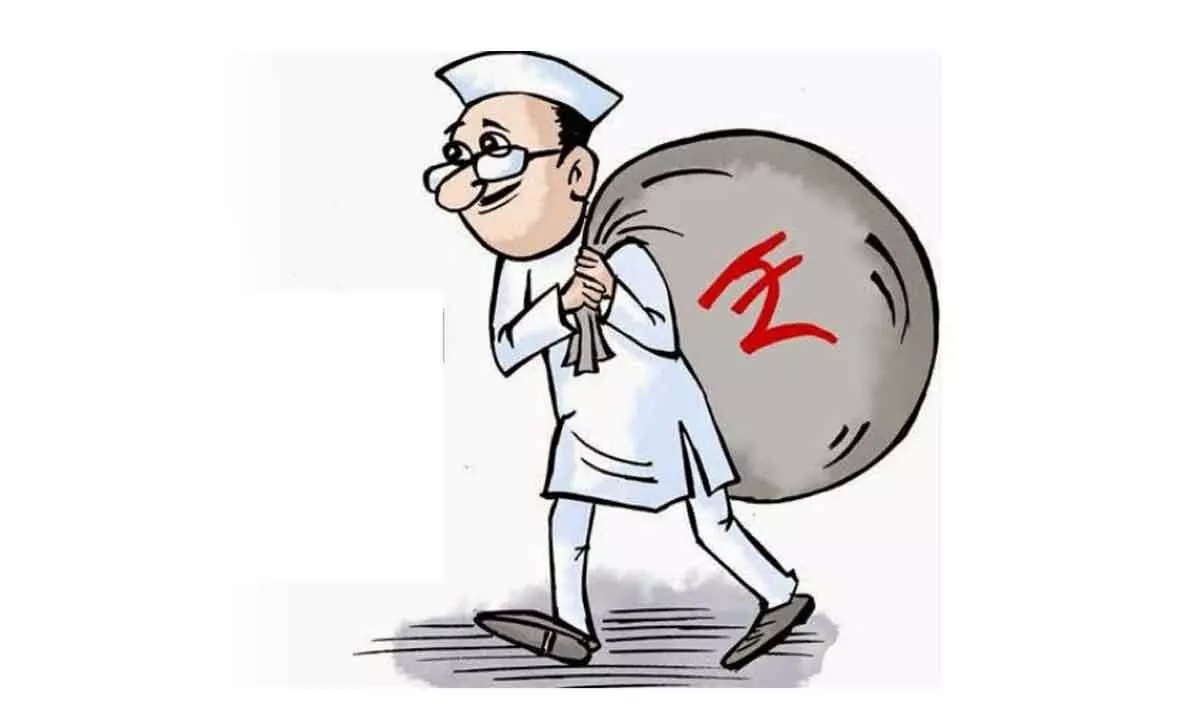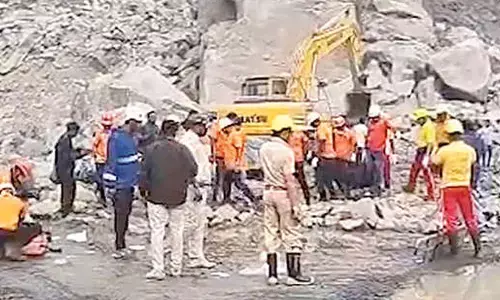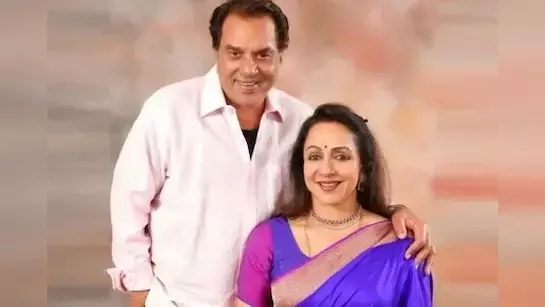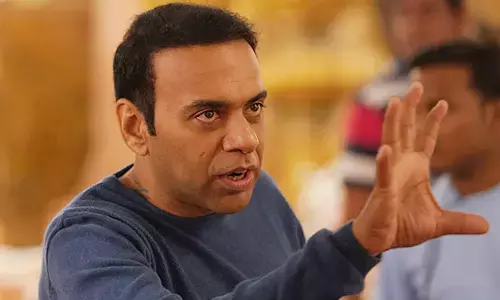If democracy is bought in India, what next?

The past precedent of toppling governments for ideological reasons has now transformed into bribing and buying lawmakers of non-BJP ruled states and then destabilising state governments in the recent past.
The recent developments in Telangana State where, as reported extensively in media supported by evidence-based audio tapes conversations, pertaining to a poaching episode, wherein four MLAs of ruling Telangana Rashtra Samithi Party were conspicuously offered Rs 100 crore each as bribe for shifting loyalties, taking the name of a national party, is atrocious and by all means a severe blow to parliamentary democratic institutions. This is thus a classic case of abetting and attempting destabilization of a duly elected popular government. In this way, if democracy is bought in India, what next is the million-dolor question now that every right-thinking person is pondering over.
As the saying goes, there cannot be smoke without fire. Amidst fiercely contested by-elections for Munugodu assembly segment, possibilities of large-scale luring of voters are not uncommon. But such attempts of poaching legislators is a perilous development. Irrespective of what turn ultimately it takes, the accused party is up in arms and started hurling challenges at the TRS leadership for an inquiry by CBI or a sitting Supreme Court Judge and for swearing before the deity of Yadadri Laxmi Narasimha Swami. Finally, the whole issue landed in court.
Notwithstanding all that happened in Telangana, the newest state formed after 14 years of peaceful struggle led by K Chandrashekar Rao, India uninterruptedly witnessed the unfortunate game of destabilising and toppling of duly elected state governments by the Center, no matter which party was in power – Congress or BJP. In some cases, indiscriminate dismissal and imposition President's Rule took place and in other cases defections were engineered. Except in very few cases, ideology-based loyalty shifting seldom takes place.
For instance, many switched loyalties to TRS, both in the first and the second terms of KCR governance, as they were fascinated by the welfare and development schemes and the way CM was guiding the State towards the path of Golden Telangana. Some left their parties for the TRS as they failed to play the role of true opposition. However, it was hundred per cent a fact that all of them shifted their loyalty of their own volition. Thus, all those sections seeking development and welfare of the State came together to work hand in hand. Telangana State has now achieved political and economic stability.
Against this backdrop, it is unfortunate that attempts are being made now to stall further progress by some elements, as in the case of the current poaching episode. Fortunately, the attempts failed at the right time.
India, which is celebrating 75 years of Independence as its Golden Jubilee, in its post-independence history of checkered but sustained democracy by holding periodical elections, has had its strange drawbacks too. Seeds were sown for unhealthy conventions of toppling elected governments during Nehru premiership of congress rule. This is a harsh reality, but a bitter fact. People (voters) in this country, though lured, seduced and misled; protected, preserved and defended democracy from all sorts of tribulations. Democracy has come to stay with aberrations.
Back again to what has happened in Telangana. The history of toppling duly elected state governments enjoying a majority in Legislature, time and again, offers many lessons to political analysts, since the attempt made in Telangana is more or less on similar lines as had happened in Arunachal Pradesh, Madhya Pradesh, Manipur, Goa, Sikkim, Bihar, Karnataka, Puducherry, Maharashtra, Uttarakhand, Jammu and Kashmir. In Rajasthan, attempts were made in vain to destabilize the congress government. Ashok Gehlot, the Chief Minister managed to thwart it. The latest example was that of Maharashtra, where Eknath Shinde was instigated to rebel against Uddhav Thackeray. Since 2014, the focus of BJP seems to be to bring down the elected governments in states. Fortunately, the attempt made to destabilise KCR government in Telangana, too, has obviously failed.
Delhi Chief Minister Arvind Kejriwal recently claimed that the BJP has been spending crores of rupees on 'poaching' other parties' MLAs and on toppling governments of other parties in the country. He said they have spent Rs 6,300 crore so far on toppling governments. He called the BJP a serial killer of state governments.
The toppling or dismissal of state governments, which started during the Congress rule mainly for political considerations, slowly evolved into the shape of buying lawmakers for engineering defections. For the first time in 1953 when Nehru was Prime Minister, the government headed by an independent, Gian Singh Rarewala, of Patiala and East Punjab States Union was suspended by using Article 356 and President's Rule was imposed. Then in 1959, when Indira Gandhi was AICC president, and Burgula Ramakrishna Rao from Telangana was Governor, the first ever communist government came to power through ballot in the world. That was in Kerala, headed by EMS Namboodiripad. It was dismissed and President's Rule was imposed. Toppling NTR's TDP government and restoring him back is also part of history during the Congress rule.
The first non-Congress Party coalition Janata government headed by Morarji Desai, immediately upon taking office in 1977, undemocratically pressured as many as ten state governments where the Congress was in power to dissolve the state assemblies and hold fresh elections despite the fact that they enjoyed a comfortable majority. That was again for political reasons. The argument of Janata party was that the ruling parties there had been resoundingly rejected by voters and would need to win a new mandate from the people of the states. In the elections, the Congress was defeated in all the states, and the Janata party took power in seven states, namely, Uttar Pradesh, Bihar, Haryana, Orissa, Madhya Pradesh, Rajasthan and Himachal Pradesh as well as majority seats in Jammu and Kashmir.
After Congress Party came to power again in 1980, following the collapse of Janata government, citing the dangerous precedent set by the Janata Party, Prime Minister Indira Gandhi opted for dismissal of governments in nine states. They were the Janata Party-ruled Bihar, Gujarat, Madhya Pradesh and Rajasthan, the Lok Dal's Orissa and Uttar Pradesh, the AIADMK-run Tamil Nadu, and Maharashtra, run by a coalition headed by the 'Parallel Congress'. She, through her trouble-shooters could engineer defections in only four others, namely, Karnataka, Sikkim, Haryana and Himachal Pradesh. These were all, for right or wrong, political decisions.
PV Narasimha Rao, while he was Prime Minister, too dismissed elected the governments of Rajasthan, Madhya Pradesh and Himachal Pradesh and suspended the BJP Chief Ministers for reportedly failing to carry out a ban on religious extremist groups. His dismissal of the state governments came just over a week after he used similar constitutional powers to sack the BJP-led government in Uttar Pradesh.
The earlier precedent of imposing President's Rule adopted by Congress and later Janata, and adopted by Congress again, has transformed into bribing, buying lawmakers of non-BJP ruled states and then destabilising state governments in the recent past. Both are anti-democratic. Hence, the country needs a new direction, a momentous change and a new political system as 75 years have passed since independence and politics of destabilization are still rampant in the country. Politics shall be treated as an honorable task and not a dirty game as some see it and follow.














